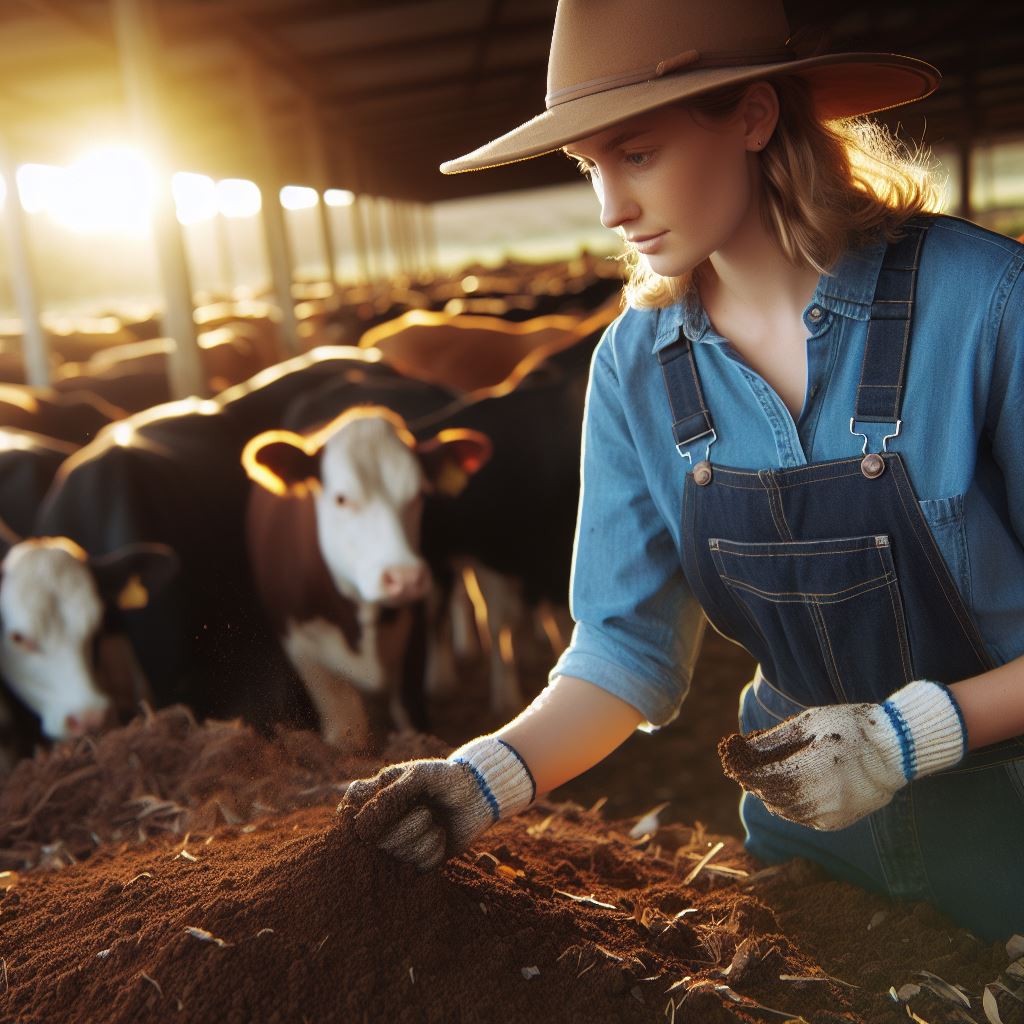Introduction
A. Seasonal farm work in Australia
Seasonal farm work in Australia is a popular option for travelers, backpackers, and students.
It involves working on farms, orchards, vineyards, and other agricultural sites for a short period of time.
B. Importance and benefits of seasonal farm work
Seasonal farm work has many benefits, such as:
- Earning money while exploring the country
- Gaining valuable skills and experience
- Meeting new people and cultures
- Qualifying for a second or third year visa extension
C. Overview of what the blog post will cover
In this blog post, you will learn:
- How to find and apply for seasonal farm work in Australia
- What to expect from the work and the lifestyle
- What are the rights and responsibilities of seasonal farm workers
- How to make the most of your seasonal farm work experience
Types of Seasonal Farm Work
In Australia, seasonal farm work offers diverse opportunities across fruit picking, vegetable harvesting, and livestock farming.
Depending on your preferences and abilities, you can choose the type of work that suits you best.
Each category has its own distinct characteristics and requirements, ensuring there’s something for everyone looking to experience rural life Down Under.
A. Fruit Picking
- Overview: Popular fruits include apples, oranges, berries, and grapes.
- Regions: Queensland, New South Wales, and Victoria are key regions.
- Skills: Attention to detail, physical endurance, and hand-eye coordination.
- Accommodation: Farm stays, hostels, and shared rentals are common.
- Transportation: Some farms offer transport, while public options vary.
Fruit picking is ideal for those who enjoy working outdoors and have good hand-eye coordination.
It’s essential to be physically fit as the job often involves long hours of standing and repetitive movements.
Queensland, New South Wales, and Victoria offer ample opportunities, especially during the harvest seasons.
B. Vegetable Harvesting
- Overview: Common vegetables are tomatoes, carrots, lettuce, and broccoli.
- Regions: Tasmania, South Australia, and Western Australia are prominent.
- Skills: Stamina, agility, and the ability to work in varying weather conditions.
- Accommodation: Farmhouses, caravan parks, and rural accommodations.
- Transportation: Many farms arrange shuttles, but personal vehicles are useful.
Vegetable harvesting requires stamina and adaptability, as the work can be physically demanding and subject to weather conditions.
Tasmania, South Australia, and Western Australia are known for their vegetable production, offering plenty of work opportunities throughout the year.
C. Livestock Farming
- Overview: Livestock includes sheep, cattle, pigs, and poultry.
- Regions: Queensland, New South Wales, and Western Australia are significant.
- Skills: Handling animals, basic veterinary knowledge, and physical strength.
- Accommodation: On-farm housing, rural rentals, and farmstay options.
- Transportation: Farms may provide transport or require personal vehicles.
Livestock farming appeals to individuals with a passion for animals and the outdoors.
Handling livestock requires patience, strength, and sometimes basic veterinary knowledge.
Queensland, New South Wales, and Western Australia are prominent regions for livestock farming, with opportunities available year-round.
Your Personalized Career Strategy
Unlock your potential with tailored career consulting. Get clear, actionable steps designed for your success. Start now!
Get StartedRegardless of the type of seasonal farm work you choose, accommodation and transportation options vary but are generally provided by the farm or available nearby.
Whether you’re picking fruit, harvesting vegetables, or working with livestock, Australia’s agricultural industry welcomes workers from all walks of life to experience the rewarding challenges of farm life.
Read: Future of Agri-Environmental Management in AU
Finding Seasonal Farm Work
A. Online Platforms and Websites
- Popular Websites: Seek, Gumtree, and Harvest Trail are widely used for Australian farm job listings.
- Creating an Appealing Profile: Highlight relevant experience, skills, and willingness to work in diverse environments.
- Effective Search and Application: Use specific keywords, customize applications, and follow up promptly.
B. Employment Agencies and Organizations
- Agency Role: They bridge job seekers and farmers, offering placements and support.
- Recommended Agencies: Farm Workers Australia and Harvest Labour Services are reputable options.
- Utilizing Services: Register online, attend orientation sessions, and communicate preferences clearly.
C. Local Newspaper Advertisements and Community Networks
- Newspaper Resource: Local newspapers often feature farm job openings, especially in rural areas.
- Community Networks: Engage with local groups, markets, and events to connect with farmers.
- Effective Response: Craft personalized inquiries, express interest, and be punctual in follow-ups.
Finding seasonal farm work in Australia demands a proactive approach.
Utilize online platforms, employment agencies, and local networks strategically.
Crafting a compelling profile or resume is essential, along with tailored applications.
Engage with reputable agencies like Farm Workers Australia, and leverage local newspapers and community networks.
By employing these strategies, aspiring farm workers can increase their chances of securing rewarding seasonal employment opportunities in Australia.
Read: Biodiversity: Enviro Manager’s Role in AU

What to Expect and How to Prepare
Preparing for seasonal farm work involves understanding the work conditions, acquiring essential skills and equipment, and mentally preparing yourself for the challenges ahead.
A. Work conditions and expectations
Seasonal farm work in Australia demands physical endurance and resilience.
You’ll face various physical demands and challenges throughout your employment.
From working long hours under the sun to lifting heavy objects, be prepared for the physically demanding nature of the job.
Moreover, you should expect to engage in common farm tasks and follow daily routines.
These tasks may include planting crops, harvesting fruits or vegetables, milking cows, feeding animals, and operating machinery.
Familiarize yourself with these tasks to be more efficient in your work.
Punctuality and reliability are highly valued in the agricultural industry.
Farms often operate on tight schedules and rely on workers to meet deadlines.
Arriving on time and completing tasks efficiently demonstrate your commitment and professionalism.
B. Essential skills and equipment
Basic farming skills and knowledge of equipment operation are essential for seasonal farm work.
Familiarize yourself with various farming techniques, such as planting seeds, irrigating crops, and identifying pests or diseases.
This knowledge will make you a more competent worker.
In terms of clothing and protective gear, wear sturdy boots to protect your feet from potential hazards.
Use gloves to shield your hands when handling tools or working with animals.
Additionally, wear appropriate hats and sunscreen to protect yourself from the sun’s harmful rays.
Understanding and adhering to workplace health and safety requirements is crucial for your well-being.
Familiarize yourself with safety protocols, emergency procedures, and the proper handling of chemicals or machinery.
Prioritize your safety and the safety of your colleagues.
C. Mental and emotional preparation
Seasonal farm work can be challenging mentally and emotionally.
Potential isolation and cultural differences may affect your experience.
Prepare yourself by finding ways to cope with these challenges.
Stay connected with friends and family through regular communication and immerse yourself in the local community to combat isolation.
Embrace the farming lifestyle and appreciate the beauty of nature around you.
Working closely with animals and tending to crops can provide a fulfilling and rewarding experience.
Take time to connect with the natural environment and find joy in the simplicity of farm life.
Finally, maintaining motivation and a positive mindset is crucial throughout your seasonal farm work journey.
Set achievable goals, track your progress, and celebrate your accomplishments.
Surround yourself with supportive colleagues and find ways to stay motivated even during challenging times.
By preparing yourself mentally, physically, and emotionally, you can make the most out of your seasonal farm work in Australia.
Embrace the challenges, equip yourself with the necessary skills and gear, and maintain a positive outlook to have a fulfilling experience on the farm.
Read: Soil Health: Top Priority for AU Enviro Experts
Stand Out with a Resume That Gets Results
Your career is worth more than a generic template. Let us craft a resume and cover letter that showcase your unique strengths and help you secure that dream job.
Get HiredLearn More: Australian Mining: Engineers’ Sustainability Role
See Related Content: Aussie Agri Robots: Future Farms
Discover More: Aussie Soil Health: Scientists’ Insight
Rights and Legal Considerations
A. Understanding Australian Employment Laws
- Fair Work Australia regulations ensure fair treatment.
- Minimum wage and working hours are strictly enforced.
- Knowing employee rights and entitlements is crucial.
Australia’s robust legal framework ensures fairness for all involved in seasonal farm work.
Fair Work Australia regulations form the cornerstone, guaranteeing fair treatment and upholding minimum wage and working hour standards.
It’s essential for workers to familiarize themselves with their rights and entitlements to ensure they are not exploited.
B. Visa Requirements for Working Holidaymakers
- Eligibility criteria for working holiday visas are specific.
- Necessary documentation and application processes must be followed.
- Visa holders interested in extended work periods can seek extensions.
For those coming to Australia on working holiday visas, understanding the visa requirements is paramount.
Eligibility criteria are strict, and adherence to documentation and application procedures is necessary.
Visa holders interested in extending their stay for further work opportunities can explore extension options available to them.
C. Tax Obligations and Superannuation
- Tax obligations for seasonal farm workers vary.
- Superannuation contributions and benefits are important.
- Seeking guidance from taxation professionals or agencies is advisable.
Navigating tax obligations and superannuation contributions can be complex for seasonal farm workers.
Understanding one’s tax liabilities and ensuring compliance is crucial.
Similarly, considering superannuation contributions and benefits is important for long-term financial planning.
Seeking guidance from taxation professionals or relevant agencies can provide clarity on these matters and ensure compliance with Australian laws.
To sum it up, being informed about rights, legal obligations, and visa requirements is fundamental for those engaging in seasonal farm work in Australia.
Transform Your LinkedIn for Maximum Impact
Elevate your professional brand with a LinkedIn profile that attracts recruiters, showcases your expertise, and maximizes opportunities. Stand out in your industry with a profile built for success.
Boost ProfileBy understanding and adhering to these regulations, workers can protect themselves and enjoy a fulfilling and lawful experience while contributing to Australia’s agricultural sector.
Read: Renewable Energy in AU Farms: Enviro Impact
Conclusion
A. Key Points Discussed in the Blog Post
Seasonal farm work in Australia presents a myriad of opportunities, encompassing various tasks and experiences.
As the agricultural landscape varies across different regions of the country, the types of work available fluctuate with the seasons.
For instance, the fruit-picking season in Queensland may differ from the wheat harvesting season in New South Wales.
Moreover, international workers keen on engaging in seasonal farm work can take advantage of special working holiday visas tailored to facilitate their participation in this sector.
These visas provide an avenue for individuals to immerse themselves in the Australian farming culture while also contributing to the industry.
B. Encouragement for Readers
Embracing seasonal farm work in Australia can be an enriching and fulfilling endeavor.
Beyond the tangible benefits of earning income, embarking on this journey offers a unique opportunity to expand one’s horizons.
It’s a chance to forge connections with people from diverse backgrounds, fostering new friendships and cultural exchanges.
Furthermore, the rustic charm of rural Australia beckons adventurers to explore its natural landscapes, from rolling countryside vistas to pristine coastal regions.
Engaging in seasonal farm work opens doors to a world of exploration and discovery, enriching both the mind and the spirit.
C. Final Thoughts and Potential Benefits for Personal and Professional Growth
Participating in farm work goes beyond the mere completion of tasks; it serves as a crucible for personal and professional development.
Through hands-on involvement in agricultural activities, individuals cultivate essential skills such as teamwork, problem-solving, and adaptability.
The dynamic nature of farm work demands resilience and resourcefulness, traits that translate seamlessly into various aspects of life.
Moreover, the experience fosters a robust work ethic and a sense of independence, laying a solid foundation for future endeavors.
From a professional standpoint, engaging in seasonal farm duty enhances one’s resume, demonstrating versatility and a willingness to embrace challenges.
It opens doors to a multitude of career pathways, ranging from agricultural management to environmental conservation.
In closing, seasonal farm work in Australia offers far more than just a means to an end; it represents a transformative journey of self-discovery and growth.
As individuals immerse themselves in the rhythm of rural life, they not only contribute to the agricultural sector but also undergo a profound personal evolution.
Through perseverance and dedication, they emerge with newfound skills, lasting memories, and an indelible appreciation for the beauty of nature and the resilience of the human spirit.




